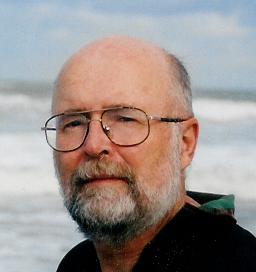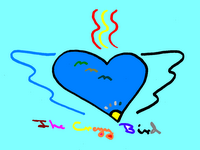
This Way to the Gas Ladies and Gentlemen. -- Tadeusz Borowski
The salvation of man is through love and in love. I understood how a man who has nothing left in this world still may know bliss, be it only for a brief moment, in the contemplation of his beloved. -- Victor Frankl, 1963Lurch, over at Main and Central, put up a post about Anne Franck the other day and it set me thinking of things I have mulled over many times..
Everybody knows about Anne Franck and we drop a tear or two for her sad fate, imprisoned in a house where just a peek at a patch of blue sky would be a gift, then her young life sent to the camps and snuffed out like a cigarette butt.
Did I say a tear or two? That would hardly suffice!
Anne Franck is symbolic of the outrageousness of the Nazi regime.
In a similar way, Abeer Qasim is perhaps symbolic of the evil implicit in the terrible vision of the New Arrogant Century, where the Lady of Liberty and Enlightenment becomes something one could [and I have!] compare to the Whore of Babylon.
If you want to scratch beneath the surface -- and you should think twice before you do, because what you find there can sear your soul! -- there are two authors you should/must/need acquaint yourself with: Tadeusz Borowski and Victor Frankl.
Borowski, 1922-1951 was a poet and fought in the Polish Resistance against the Nazi occupation. He spent years in the camps, including the infamous Auschwitz. His book is "This Way to the Gas Ladies and Gentlemen"
Frankl, 1905-1997, was a Austrian psychiatrist who knew both Freud and Adler but devoloped his own theory of Logotherapy. He was also in the camps 1942-45 and also became acquainted with Auschwitz. His book here is "Man's Search for Meaning".
I'm almost at a loss as to how to give you in a few words the impression these two made on me and my thinking in general.
Borowski's book is a series of short snapshots of life/death in the camps, incredibly vivid and revealing. Unbelievably, there is even a form of humor -- and then, just as sudden, it cuts to the bone.
As an example, I'll give you a brief precis of one of his stories:
As they were herding them, naked, to the ovens, Sgt. S. saw this nice piece of ass in the line and thought he would fuck it. (As a matter of fact, she was a famous Polish ballerina and is mentioned in the Jewish Encyclopedia.)
Seargent S. grabbed her from out of the line to take her someplace to use her body. However, the girl bent down, grabbed some gravel and threw it in his face. While he was momentarily blinded, she pulled his pistol from its holster and shot him in in the stomach.
As the "bath brigade" took her and the others to their destination, Sgt. S moaned in his death throes, "My God, why must I suffer so?"
Frankl is even harder to give a picture of in a few words. His "Man's Search for Meaning" is a combination of his theory and observations from the time he was in the camps. In doing a little research for this post, I found this excellent quote:
"Ultimately, man should not ask what the meaning of his life is, but rather must recognize that it is he who is asked. In a word, each man is questioned by life; and he can only answer to life by answering for his own life; to life he can only respond by being responsible."[As I often refer to the "Question" in my writing you might think that this is where I picked up the idea -- the fact is, I got it from Jakob Needleman and his "The Search for Lost Christianity".]
I had the good fortune of hearing Dr. Frankl speak in Denmark. I don't recall the exact year, but must have been 1979-80. A common misconception is that Frankl discovered his theory of Logotherapy in the camps. He most emphatically said that he had already the theory before. However, I would venture to say that his theory was refined, developed and, in an odd and terrible way, tested in the lab, so to speak, through his experiences.
He repeatedly states in this book is: "The best do not survive".
There is a flip side to that: the worst do not survive either, that is, not as human beings. I don't have a quote from him on this, but I'm pretty sure I got it from his book as it has direct influence on the meaning of human existence. If you will do anything -- if you have no limits or don't know what your limits are -- in the extreme situation you will exceede those limits and, although your physical existence may continue, your humanity will become meaningless and therefore destroyed.
Frankl says that those who had something to live for survived or at least had the best chances of surviving. The reason is that having something to live for gives life meaning.
He noted bitter observations from that horrible laboratory which proved the point. For example, there were people of a kabalistic inclination who "discovered" that the camps would be liberated on such and such a date.
When the date came, and they still were not liberated, these soon died.
There are many more points of his which come to mind as I relate them, but I will suffice with one more.
Someone was looking at a picture of a group of the emaciated people in the camps and remarked to Frankl, how terrible they must have felt.
Frankl replied that there was no way to know such a thing, that is what their feelings were at the moment the picture was taken.
He then related an incident when there was a gorgeous sunset. His group of fellow prisoners were entranced by its beauty for perhaps a quarter hour. Although they were sitting much like those in the picture, they were, briefly, transported from the hell they found themselves in.




No comments:
Post a Comment